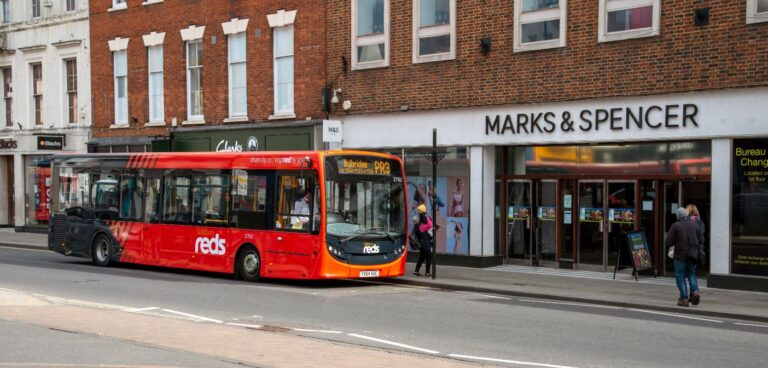Campaign for Better Transport has revealed that more than one in four bus services in England have been lost in the last decade, with the pandemic having a particularly devastating effect.
The transport charity has called for a national, government-led campaign to encourage people back on board and turn around the fortune of buses.
Campaign for Better Transport’s research shows that more than a quarter (27%) of bus services in England, as measured by vehicle miles, have vanished in the last decade, while the number of bus services – as measured by ‘live’ bus registrations – dropped from 16,913 in March 2012, to 12,067 in March 2021; a decline of 29% across England.
But, according to the charity, the biggest drop has been as a result of the Covid-19 pandemic; in the eight years between 2011/12-2018/19, bus vehicle miles in England dropped by 10%, whereas in the two years between March 2019 and March 2021, they fell by almost double that (18%).
The regions with the biggest declines are the North West and the East of England, both losing 38% of services, followed by the East Midlands with a 35% loss.
Paul Tuohy, chief executive of Campaign for Better Transport, said: “Buses are relied upon by millions of people and should play a central role in a green transport future, but they have been struggling for some time, and the pandemic has made things much worse.
“The government must recognise the need for a national campaign to attract passengers back to public transport.”
The transport charity believes the government campaign should be accompanied by fare incentives and offers to encourage people back on board, and contrasted last week’s 5p cut in fuel duty in the UK with moves to cut public transport fares in countries such as New Zealand and Germany.
Tuohy added: “Last week’s Spring Statement included a tax break for car drivers with a 5p cut in fuel duty, but nothing for public transport users, despite fares having risen at a far higher rate than fuel.
“The government says it wants people to use public transport more and drive less, but its failure to provide any financial incentives for bus users makes a mockery of its levelling up and carbon reduction ambitions.”





